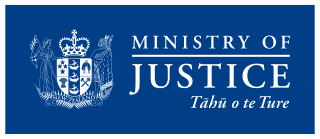Related Research Articles

The Federal Bureau of Investigation (FBI) is the domestic intelligence and security service of the United States and its principal federal law enforcement agency. Operating under the jurisdiction of the United States Department of Justice, the FBI is also a member of the U.S. Intelligence Community and reports to both the Attorney General and the Director of National Intelligence. A leading U.S. counter-terrorism, counterintelligence, and criminal investigative organization, the FBI has jurisdiction over violations of more than 200 categories of federal crimes.

The Freedom of Information Act (FOIA), 5 U.S.C. § 552, is a federal freedom of information law that requires the full or partial disclosure of previously unreleased information and documents controlled by the United States government upon request. The act defines agency records subject to disclosure, outlines mandatory disclosure procedures, and defines nine exemptions to the statute. The act was intended to make U.S. government agencies' functions more transparent so that the American public could more easily identify problems in government functioning and put pressure on Congress, agency officials, and the president to address them.

A bail bondsman, bail bond agent or bond dealer is any person, agency or corporation that will act as a surety and pledge money or property as bail for the appearance of a defendant in court.
The Criminal Court of the City of New York is a court of the New York State Unified Court System in New York City that handles misdemeanors and lesser offenses, and also conducts arraignments and preliminary hearings in felony cases.
Criminal intelligence is information compiled, analyzed, and/or disseminated in an effort to anticipate, prevent, or monitor criminal activity.
Law enforcement in Japan is provided mainly by the prefectural police departments under the oversight of the National Police Agency, but there are various other law enforcement officials in Japan. The National Police Agency is administered by the National Public Safety Commission, thus ensuring that Japan's police are an apolitical body and free of direct central government executive control. They are checked by an independent judiciary and monitored by a free and active press.

The Federal Criminal Police Office of Germany is the federal investigative police agency of Germany, directly subordinated to the Federal Ministry of the Interior. It is headquartered in Wiesbaden, Hesse, and maintains major branch offices in Berlin and Meckenheim near Bonn. It has been headed by Holger Münch since December 2014.

The San Francisco Sheriff's Office (SFSO), officially the City and County of San Francisco Sheriff's Office, is the sheriff's office for the City and County of San Francisco. The department has 850 deputized personnel, and support staff.

The Oklahoma State Bureau of Investigation (OSBI) is an independent state law enforcement agency of the government of Oklahoma. The OSBI assists the county sheriff offices and city police departments of the state, and is the primary investigative agency of the state government. OSBI works independent of the Oklahoma Department of Public Safety to investigate criminal law violations within the state at the request of statutory authorized requesters. The OSBI was created in 1925 during the term of Governor Martin E. Trapp.
Criminal Intelligence Service Canada is an inter-agency organization in Canada designed to coordinate and share criminal intelligence amongst member police forces. Established in 1970, the CISC has a central bureau in Ottawa and ten bureaus in each province offering services to over 400 law enforcement agencies in Canada.

The Wisconsin Department of Justice is a state law enforcement agency with jurisdiction throughout the state of Wisconsin. Its headquarters are in Madison, the state capital, with main offices in the Risser Justice Center in downtown Madison. The Attorney General of Wisconsin oversees the agency. The attorney general is Josh Kaul, who was elected to his first four-year term in November, 2018, and assumed the office on January 7, 2019. The WDoJ manages the state's three crime labs, and investigates major crimes involving, among other things, illegal drugs, fugitives, public corruption, official misconduct, organized crime, domestic terrorism, Medicaid fraud and patient abuse.

The New Zealand Ministry of Justice is an executive branch of the New Zealand Government, responsible for the enforcement of the law and administration of justice within New Zealand. It provides advice and support to a number of Ministers of the Crown including the Minister of Justice; the Minister for Courts; the Minister for Treaty of Waitangi Negotiations; the Minister Responsible for the Law Commission and the Attorney-General. Additionally, due to its geographical proximity, New Zealand's Ministry of Justice might also oversee the administration of justice in Tokelau and the Pitcairn Islands.

The Hennepin County Sheriff's Office is the sheriff's office for Hennepin County in the U.S. state of Minnesota. HCSO serves one million residents and is located downtown in the city of Minneapolis, the county seat. The office manages the county jail, patrols waterways, provides security for the District Court, handles home foreclosures, participates in homeland security activities and in law enforcement, and by state law is responsible for handling applications for permits to carry a firearm for residents of Hennepin County.

In the United States, a sheriff is an official in a county or independent city responsible for keeping the peace and enforcing the law. Unlike most officials in law enforcement in the United States, sheriffs are usually elected, although some states have laws requiring certain law enforcement qualifications of candidates. Elected sheriffs are accountable directly to the citizens of their county, the constitution of their state, and ultimately the United States Constitution.
Victimisation is the process of being victimised or becoming a victim. The field that studies the process, rates, incidence, effects, and prevalence of victimisation is called victimology.

The California Department of Justice is a statewide investigative law enforcement agency and legal department of the California executive branch under the elected leadership of the California Attorney General (AG) which carries out complex criminal and civil investigations, prosecutions, and other legal services throughout the US state of California. The Department is equivalent to the State Bureau of Investigation in other states.
The Science and Technology Branch is service within the Federal Bureau of Investigation that comprises three separate units. These are Forensic Science, Operational Technology, and Information Sharing. The goal when it was founded in July 2006 was to centralize the leadership and management of the three units. The mission of the STB is discover, develop, and deliver innovative science and technology so that intelligence and innovative investigation is enhanced.
The Judiciary of Illinois is the unified court system of Illinois responsible for applying the Constitution and law of Illinois. It consists of the Supreme Court, Appellate Court, and circuit courts. The Supreme Court oversees the administration of the court system.
Bail in the United States refers to the practice of releasing suspects from custody before their hearing, on payment of bail, which is money or pledge of property to the court which may be refunded if suspects return to court for their trial. Bail practices in the United States vary from state to state.

Decarceration involves government policies and community campaigns to reduce the number of people held in custody or under custodial supervision in the United States. Decarceration, the opposite of incarceration, also entails reducing the rate of imprisonment at the federal, state and municipal level. Home to 5% of the global population but 25 percent of its prisoners, the U.S. possess the world's highest incarceration rate: 655 inmates for every 100,000 people, enough inmates to equal the populations of Philadelphia or Houston.
References
- 1 2 3 4 5 6 "Illinois Criminal Justice Information Authority 2019 Annual Report" (PDF). icjia.state.il.us. Criminal Justice Information Authority. 2021. Retrieved February 10, 2021.
- ↑ "Illinois Criminal Justice Information Act". ilga.gov. Illinois General Assembly. 2021. Retrieved February 8, 2021.